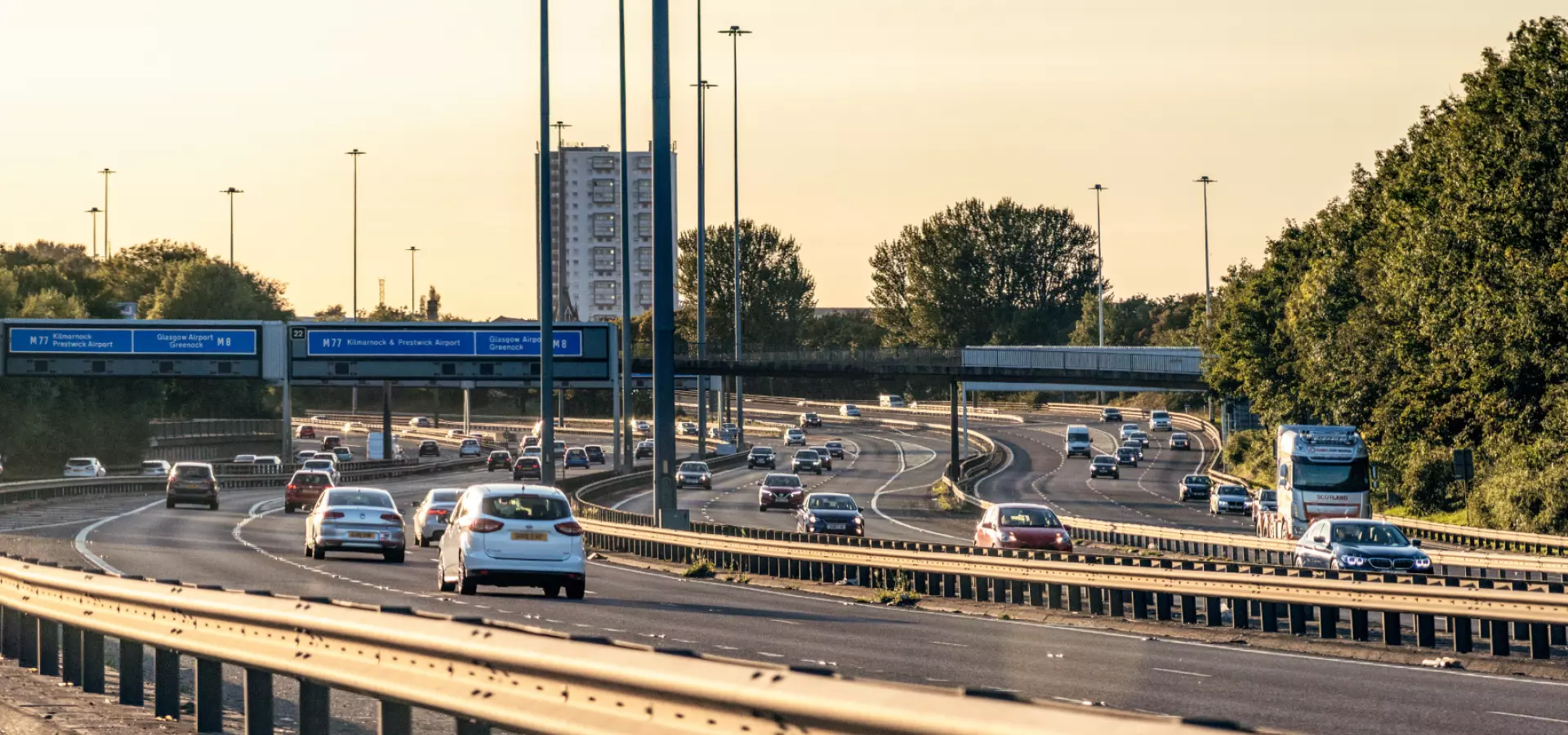
The M74 - a transport connection or public health blockage?
The long awaited and controversial M74 extension on the south side of Glasgow opened on June 28th just after Glasgow schools broke up for the summer. Costing over half a billion pounds, this five mile stretch of urban motorway connects the northern section of the M74 to the M8, southwest of the Kingston Bridge in central Glasgow. On the day the motorway opened, the Scottish Government’s Cabinet Secretary for Infrastructure and Capital Investment, Alex Neil said: "The new M74 motorway will bring major economic and social benefits to businesses, communities and industry in the west of Scotland and the country as a whole.” But others are less confident regarding future positive impacts of this new motorway and whether the benefits it brings will outweigh its negative impacts. Indeed, the decision to proceed with the construction of the M74 in 2004 was made despite the conclusions of an independent local public inquiry which recommended against the proposal, stating that the new motorway “would be very likely to have very serious undesirable results” on local communities.
The opening of this major new road highlights the growing tension in reconciling the demands of a motorised transport network with individual and public health. Public health commentators have proposed that cars might be the ‘new tobacco’ as similar marketing tactics have been used to increase their usage despite the fact that they cause significant health harm. These well recognised and harmful impacts include physical inactivity, obesity, death and injury from crashes, cardiac and respiratory disease from air pollution, noise, community severance and climate change. There are now increasing calls for radical action to reduce demand for motorised transport and to create a sustainable transport system which can improve journey times and connections while reducing emissions and improving quality, accessibility and affordability. Recent evidence submitted to the House of Commons Transport Select Committee proposed that investment in ‘smarter choices’ (travel planning, car-reduction policies, etc), road safety and cycling schemes and public transport represented by far the best value for money in transport interventions. Many European cities with similar characteristics to Scotland's have achieved high levels of walking and cycling, through strong political leadership and investment.
GCPH has been exploring the relationship between transport and health through a programme of research and data analysis on transport and travel patterns in the West of Scotland. Our data shows increasing levels of car travel over time along with less active travel (walking and cycling) to work and to school.
The health impacts of the M74 extension remain to be seen. Baseline research has already been conducted to investigate impacts on walking and cycling during its construction and future research is planned now it is open. In the meantime, there are increasingly convincing arguments that investment in measures to promote active, sustainable travel in Scotland is more cost effective than building new roads which many propose will only lead to increased levels of traffic and further congestion.
If walking or cycling as part of short, everyday journeys was to become the norm rather than the exception, our individual, community and planetary health would benefit enormously. There would be increased levels of physical activity in the population bringing many health benefits including: reduced risk of heart disease, diabetes and many other diseases including cancer; reduced risk of osteoporosis and better mental health; many of our neighbourhoods would be safer and pleasanter to live in; and there would be reduced emissions of greenhouse gases into our atmosphere.
England’s chief medical officer has called physical activity a potential ‘wonder drug’ – active travel is a golden opportunity to help unlock its potential and we should make much more use of it.